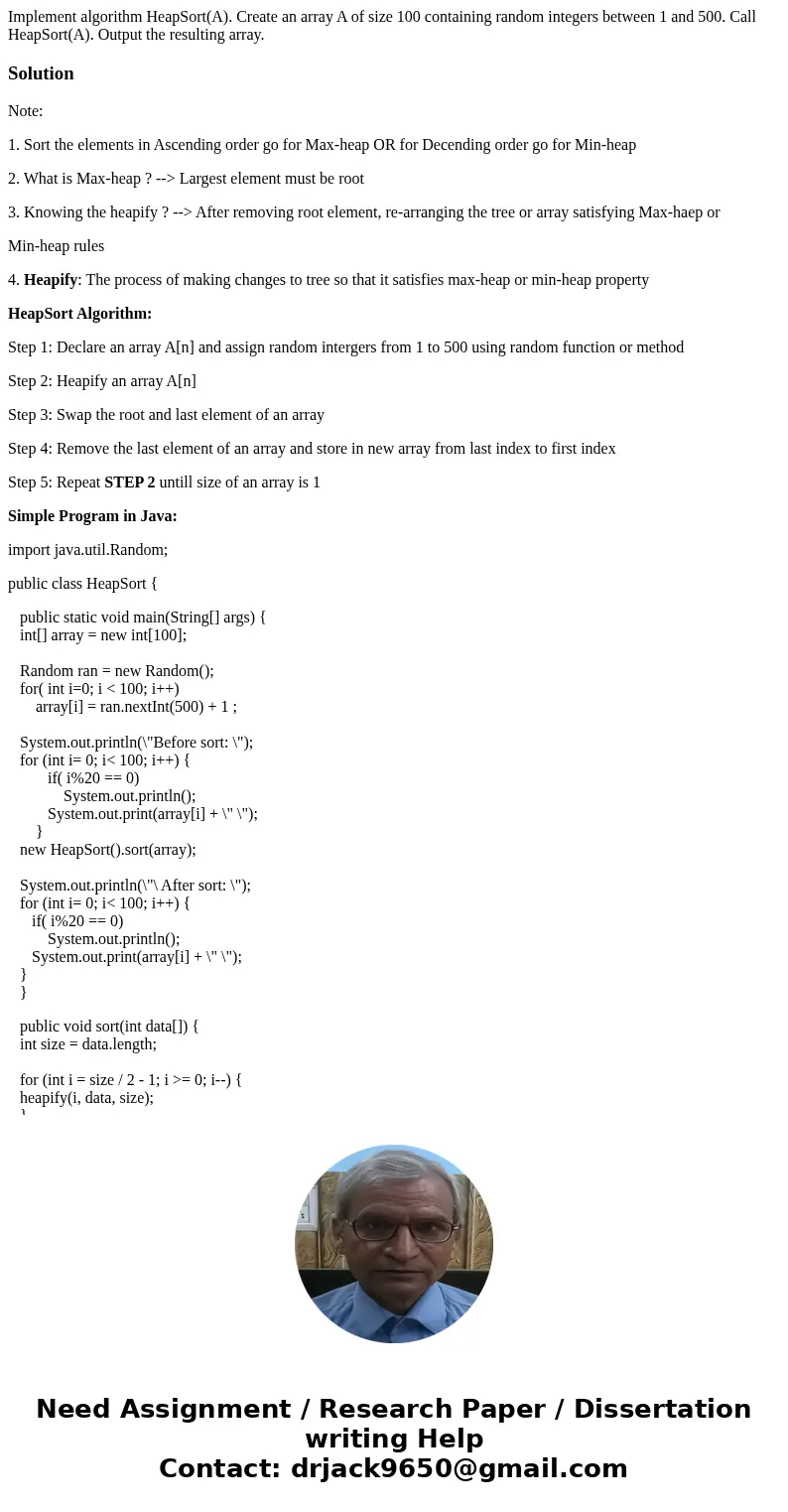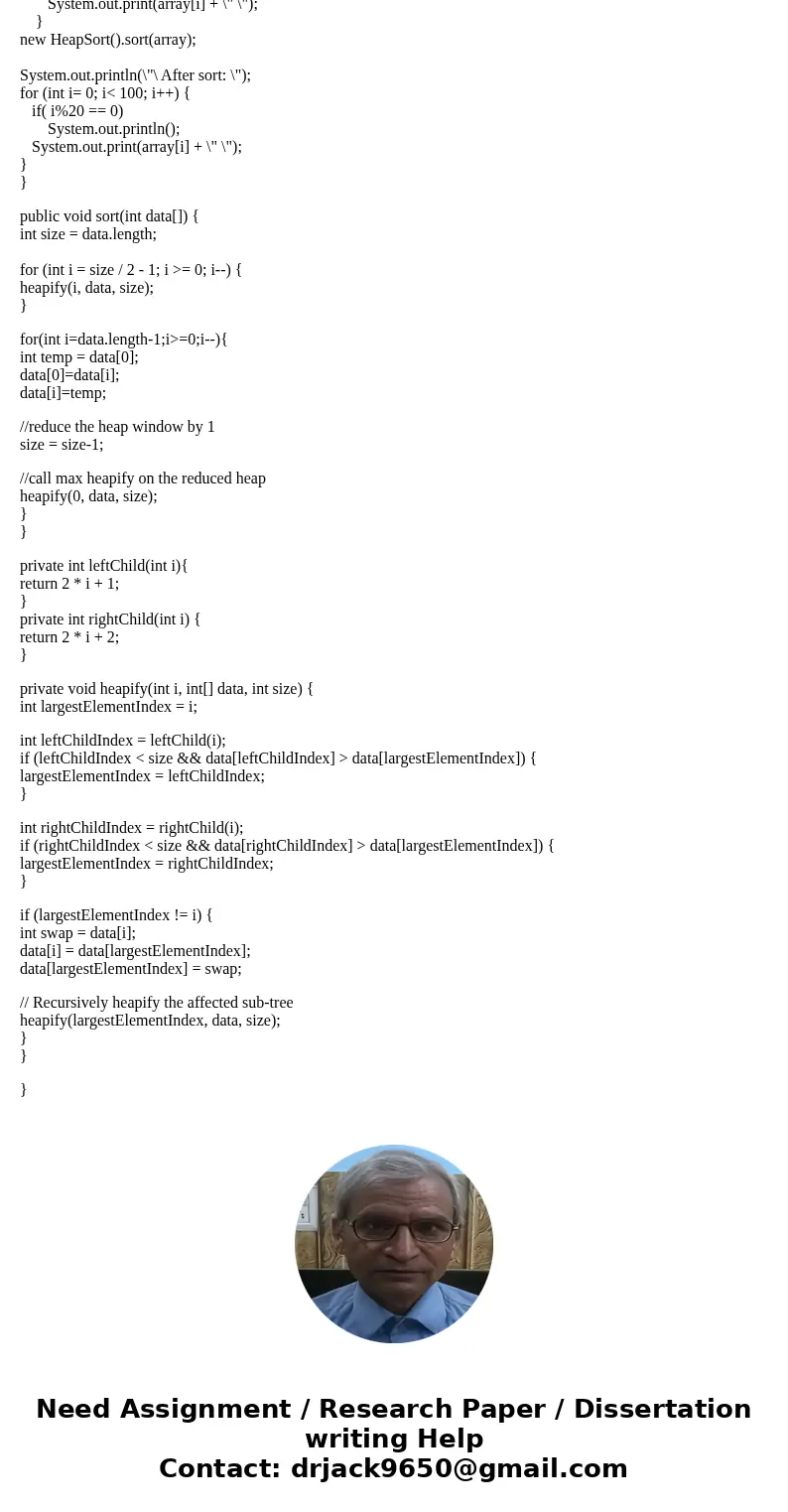Implement algorithm HeapSortA Create an array A of size 100
Solution
Note:
1. Sort the elements in Ascending order go for Max-heap OR for Decending order go for Min-heap
2. What is Max-heap ? --> Largest element must be root
3. Knowing the heapify ? --> After removing root element, re-arranging the tree or array satisfying Max-haep or
Min-heap rules
4. Heapify: The process of making changes to tree so that it satisfies max-heap or min-heap property
HeapSort Algorithm:
Step 1: Declare an array A[n] and assign random intergers from 1 to 500 using random function or method
Step 2: Heapify an array A[n]
Step 3: Swap the root and last element of an array
Step 4: Remove the last element of an array and store in new array from last index to first index
Step 5: Repeat STEP 2 untill size of an array is 1
Simple Program in Java:
import java.util.Random;
public class HeapSort {
public static void main(String[] args) {
int[] array = new int[100];
Random ran = new Random();
for( int i=0; i < 100; i++)
array[i] = ran.nextInt(500) + 1 ;
System.out.println(\"Before sort: \");
for (int i= 0; i< 100; i++) {
if( i%20 == 0)
System.out.println();
System.out.print(array[i] + \" \");
}
new HeapSort().sort(array);
System.out.println(\"\ After sort: \");
for (int i= 0; i< 100; i++) {
if( i%20 == 0)
System.out.println();
System.out.print(array[i] + \" \");
}
}
public void sort(int data[]) {
int size = data.length;
for (int i = size / 2 - 1; i >= 0; i--) {
heapify(i, data, size);
}
for(int i=data.length-1;i>=0;i--){
int temp = data[0];
data[0]=data[i];
data[i]=temp;
//reduce the heap window by 1
size = size-1;
//call max heapify on the reduced heap
heapify(0, data, size);
}
}
private int leftChild(int i){
return 2 * i + 1;
}
private int rightChild(int i) {
return 2 * i + 2;
}
private void heapify(int i, int[] data, int size) {
int largestElementIndex = i;
int leftChildIndex = leftChild(i);
if (leftChildIndex < size && data[leftChildIndex] > data[largestElementIndex]) {
largestElementIndex = leftChildIndex;
}
int rightChildIndex = rightChild(i);
if (rightChildIndex < size && data[rightChildIndex] > data[largestElementIndex]) {
largestElementIndex = rightChildIndex;
}
if (largestElementIndex != i) {
int swap = data[i];
data[i] = data[largestElementIndex];
data[largestElementIndex] = swap;
// Recursively heapify the affected sub-tree
heapify(largestElementIndex, data, size);
}
}
}


 Homework Sourse
Homework Sourse